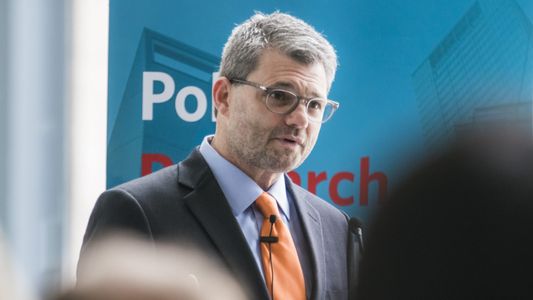Gallagher Discusses Age of Polycrisis and his book The Case for a New Bretton Woods
In an interview for the Institute for New Economic Thinking, Professor Kevin P. Gallagher extensively discussed how in the current era of polycrisis where uncertainty is dominant, leaders need to develop systems that prioritize resilience. In the video titled “The Case for a New Bretton Woods,” Gallagher underscored that structures designed in the 1940s no longer align with the contemporary world order, and these need to be replaced with new, sturdier structures that not only gratify the need for employment and stability but also support in creating a more equitable, low-carbon, and resilient economy.

“I think the largest economic risk that we’re engaging in right now is what folks are calling the polycrisis,” said Gallagher. “There is no longer one particular risk that we now have to be dealing with [but rather] a set of compound risks. We have a high interest rate environment and when that happens that sends shock waves, especially into the Global South but then there could be a war or a conflict in the Middle East or Russia. Then there could be sanctions that could affect trade patterns. Then another country might put in tariffs and protectionism that could have another impact. Multitude and compounding of the crisis, right? Then throw a pandemic on that and a hurricane that wipes out a bunch of small island states. Countries now have to have a toolkit and an international financial architect that helps prevent and mitigate these things.”
Drawing insights from his book The Case for a New Bretton Woods, Gallagher highlighted five principles that can help the world navigate the polycrisis era: (1) creating a more equal, lower-carbon, and resilient economy; (2) having common but differentiated responsibilities for countries; (3) enabling every country to pursue their national development goals through thoughtful policymaking; (4) designing national development strategies that don’t negatively impact other countries; and (5) fostering accountability.
“What I’m worried about is that we’re in a more uncertain world,” said Gallagher. [But] uncertainty is also an opportunity and we live in a much more innovative capacity world. We’re building new ways of doing policy, new ways of doing technology, new ways of organizing human behavior. It’s a wonderful world to be in many ways but we need to channel that innovation into ways of providing resilience. We need to be able to grow and prosper collectively while being able to make sure that we can prevent and mitigate the unpredictable onslaught of negative shocks…”
The complete interview can be accessed here.
Kevin P. Gallagher is a professor of Global Development Policy at the Frederick S. Pardee School of Global Studies at Boston University and the director of the Boston University Global Development Policy Center (GDP Center). He serves as the lead expert on Multilateral Development Bank Reform to the Brazilian Presidency of the G20. Additionally, he is a member of the Task Force on Climate, Development and the International Monetary Fund and a co-chair of the Debt Relief for a Green and Inclusive Recovery Project. Gallagher is the author or co-author of eight books, including China and the Global Economic Order (Cambridge University Press, 2025), The Case for a New Bretton Woods (Wiley, 2021), and The China Triangle: Latin America’s China Boom and the Fate of the Washington Consensus (Oxford University Press, 2016). To know more about his scholarly work and achievements, visit his faculty profile.